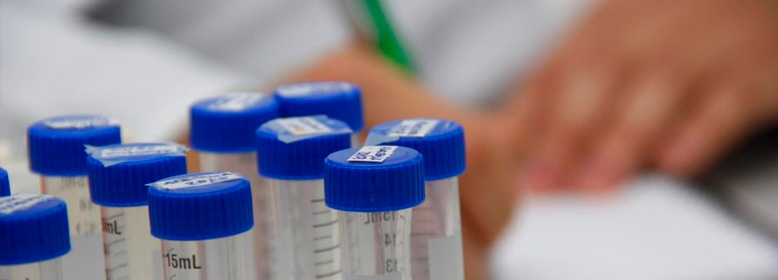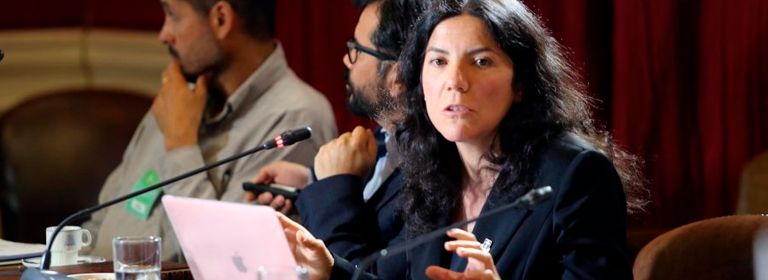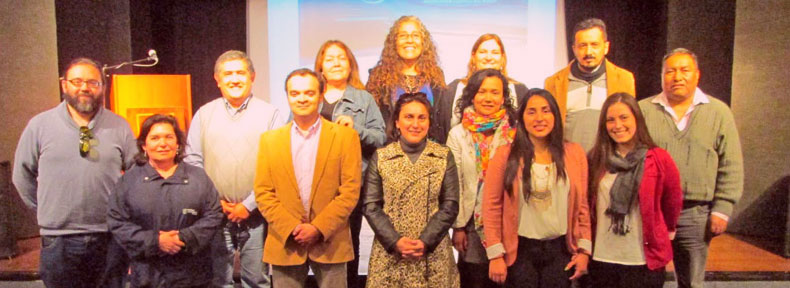Researchers at the Universidad Católica del Maule seek to make significant contributions to knowledge in areas such as pattern recognition, the health effects of agrochemicals, among other topics.
 Significant support from Chile’s National Research and Development Agency (ANID) for the development of science at the Catholic University of Maule (UCM) was recently announced through the regular and initiation lines of the National Fund for Scientific and Technological Development (Fondecyt). This funding will enable the creation of new alternatives for the development of knowledge in engineering, health, basic sciences, education, and other areas.
Significant support from Chile’s National Research and Development Agency (ANID) for the development of science at the Catholic University of Maule (UCM) was recently announced through the regular and initiation lines of the National Fund for Scientific and Technological Development (Fondecyt). This funding will enable the creation of new alternatives for the development of knowledge in engineering, health, basic sciences, education, and other areas.
In this call for proposals, the UCM was awarded a total of 18 projects, seven regular and eleven initiation projects. «Receiving this concrete support for the development of science is very motivating, both for the group of scientists who promote these lines of study and for the institution itself, given that we continue to contribute to the knowledge that emerges from Maule, with a national perspective and global projection, always with quality and sustainable proposals. As I have stated on previous occasions, we have been able to cultivate a culture of research at our university,» said Research Director Dr. Ranjeeva Ranjan.
Among the group of projects awarded, the studies in education that the faculty will address stand out, such as delving into the implementation and effect of the intercultural educational approach and pedagogies for inclusion in initial teacher training, in accordance with the standards of the teaching profession, a topic that will be addressed by Dr. María Sumonte Rojas.
Another project is research on the relationship between educational practice and knowledge of gender perspectives in science education among trainers of basic education teachers, led by Dr. Carolina Martínez Galaz, an academic at the university’s Faculty of Basic Sciences. For his part, researcher Jorge Valenzuela Carreño will investigate the value of learning for today’s schoolchildren and see how the family and school contribute to its construction.
In the field of engineering sciences, two initiatives led by researchers Ruber Hernández García and Felipe Valencia Díaz were awarded funding under the Fondecyt Regular program. They will study the establishment of reliable, privacy-preserving biometrics based on generative AI for large-scale palm vein identification and the storage of hydrogen in solid form using nanoporous materials, respectively.
One of the centers of scientific development at UCM is the Maule Center for Advanced Studies (CIEAM), a group in which researcher Sathish Manda participates, who dedicates his work to organic chemistry, promoting the development of more sustainable and environmentally friendly methodologies. Thanks to the support of ANID, the scientist will study the development of new “Brønsted C-H superacids.”
 Agrochemicals in the occupational population
Agrochemicals in the occupational population
UCM has been a pioneer in Chile in scientifically researching the impact of agrochemicals on human health and the environment. This research has included studies on the presence of pesticides in the air and food, as well as the development of tools to detect pesticide exposure in agricultural workers. This line of research is now being pursued by Dr. Boris Lucero Mondaca, director of the Center for Research in Neuropsychology and Cognitive Neuroscience (CINPSI Neurocog) at the university, which aims to establish the effects of exposure to agrochemicals on attention and cortical excitability in the occupational population of the Maule region.













